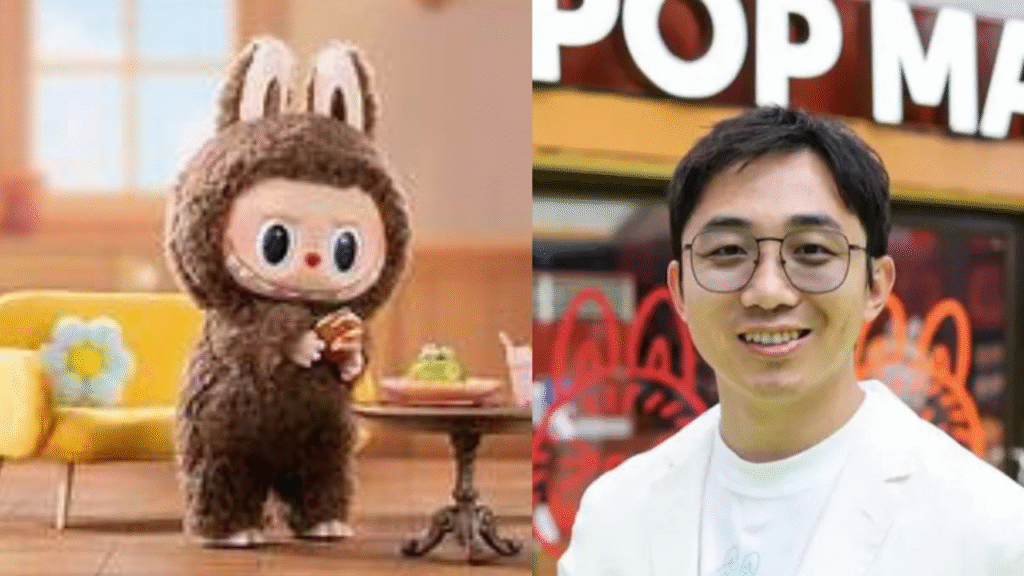
The global toy market has witnessed many trends, but few have sparked as much craze as Labubu, the quirky little creature created by Pop Mart, a Chinese collectibles giant. The immense popularity of this character has not only captured the hearts of young buyers and collectors but also catapulted Pop Mart’s founder, Wang Ning, into the spotlight. In a stunning twist of fortunes, Wang’s net worth has now surpassed that of Alibaba founder Jack Ma, one of the most iconic business leaders in China.
The Rise of Labubu
Labubu, a mischievous and wide-eyed character with rabbit-like features, was designed by Hong Kong artist Kasing Lung. Initially introduced as part of Pop Mart’s blind box collections, Labubu quickly grew into a cultural phenomenon. Collectors, influencers, and Gen Z consumers flocked to buy these miniature figures, sometimes lining up for hours or paying steep prices in secondary markets.
The toy’s charm lies in its unique storytelling and design, blending cuteness with a touch of rebelliousness, making it appealing across age groups. Today, Labubu merchandise extends beyond figures to clothing, accessories, and lifestyle products, creating an entire ecosystem around the character.
Pop Mart’s Meteoric Growth
Founded in 2010 by Wang Ning, Pop Mart initially sold designer toys but quickly pivoted to the blind box model—where buyers purchase sealed boxes without knowing which figure they’ll receive. This element of surprise, combined with limited-edition runs, transformed Pop Mart into a multi-billion-dollar empire.
- Revenue Boom: Pop Mart has reported exponential revenue growth, fueled largely by Labubu’s success.
- Global Expansion: The company has expanded into overseas markets, opening flagship stores in Japan, Korea, and even Europe.
- Digital Dominance: Online communities and e-commerce platforms have further amplified the hype, with Labubu-themed drops selling out within minutes.
This growth trajectory has sent Pop Mart’s stock soaring, boosting Wang Ning’s personal fortune.
Wang Ning Overtakes Jack Ma
According to recent reports, Wang Ning’s net worth has now eclipsed that of Alibaba’s Jack Ma, a milestone that shocked many in China’s business community. While Jack Ma built one of the largest e-commerce empires in the world, stricter regulatory oversight in recent years has weighed on Alibaba’s market valuation.
In contrast, Wang’s focus on youth-driven consumption trends and niche markets has proved incredibly lucrative. The fact that a collectibles entrepreneur can surpass one of China’s most influential tech moguls highlights the shifting dynamics of wealth creation in the country.
The Cultural Impact of Labubu
Beyond finances, Labubu has reshaped pop culture in China and abroad:
- Collector Communities: Online forums and fan clubs discuss rare figures, trade items, and celebrate Labubu’s designs.
- Social Media Buzz: Viral unboxing videos and influencer promotions have turned Labubu into a digital-age sensation.
- Merchandising Power: From plush toys to high-end fashion collaborations, Labubu has transcended its role as a toy to become a lifestyle symbol.
This cultural relevance ensures Pop Mart continues to thrive beyond temporary hype cycles.

What It Means for China’s Business Landscape
Wang Ning’s rise illustrates a broader trend: consumer culture is now driving wealth as strongly as technology once did. While Alibaba and other tech firms still dominate China’s economy, lifestyle and entertainment brands like Pop Mart are proving that creative industries can mint billionaires too.
It also signals the purchasing power of younger generations, who prioritize individuality, collectability, and experiences over traditional goods. In many ways, Wang Ning represents the new wave of Chinese entrepreneurship—agile, trend-driven, and culturally attuned.
The story of Labubu is more than a tale of a popular toy; it’s a reflection of how consumer trends can redefine global markets. Wang Ning’s meteoric rise to surpass Jack Ma in wealth demonstrates the immense power of cultural icons in today’s economy.
As Labubu mania continues to sweep across the world, it may not only cement Pop Mart’s dominance in collectibles but also reshape how we view entrepreneurship and wealth creation in the 21st century.



